Tulip Siddiq is sitting in a rocking chair in her sunny kitchen, nursing two-month-old Raphael. It would be It would be understandable, perhaps, if the Labour MP for Hampstead and Kilburn was thinking about anything but work. But she’s been glued to every twist of a dramatic week in Parliament, following all the private intrigue via a WhatsApp group for Remain-voting MPs and those seeking a softer Brexit, and is still tackling constituents’ problems between nappy changes.
And then there’s the meeting she recently had with the Home Secretary, Sajid Javid, to discuss detention without trial because, as she puts it, ‘As a woman, you don’t want to be saying, “I can’t do a meeting because I’m breastfeeding.”’ It’s an odd juggling act – half in, half out of work – that probably isn’t most women’s idea of maternity leave. But MPs have no formal right to time off after a baby (by law they’re technically not employees, so lack employment rights) and this at least beats Tulip’s experience with daughter Azalea (now two), when she felt obliged to return to Parliament only six weeks after a difficult labour and promptly fell ill with mastitis.
This time around, the 36-year-old made history by securing the temporary right to a proxy vote in the Commons – meaning another MP walks through the voting lobbies for her, so she needn’t be physically present to vote. The move followed images of her being pushed into the Commons in a wheelchair to join a crucial Brexit vote, having discharged herself from hospital on the day she was due to have a Caesarean. That clearly wasn’t an easy decision, although she’d discussed the risks thoroughly with her doctors (she’d been advised to have the baby delivered early a er developing gestational diabetes, and was in a wheelchair due to the effects of steroid injections to protect the baby’s lungs). ‘I was genuinely terrified,’ she admits. ‘It’s all very well to look at him now he’s a chubby, thriving little two-month-old, but all I could think about was what if something went wrong with my child’s health and he was born with some kind of medical problem? I had to take a lot of courage from my husband and my mother, saying, “Am I doing the right thing?”
‘I come from a family of public servants (her aunt is Prime Minister of Bangladesh) and my mother said, “If this is your calling and this is what you’re most passionate about, you have to make this decision.” My husband said, “It’s your body, it’s your decision.” But I was terrified.’ Fortunately, Raphael was delivered safely two days later, but Tulip remains grateful to Theresa May, who approached her on the night to ask how she could help. ‘She was about to lose the biggest vote of her life – I was the least of her problems – and she came over and said, “I’m really sorry to see you in this state.”
A week later, the Government duly agreed a trial of proxy voting, and not just for new mothers; the Tory MP Bim Afolami has just arranged a proxy for his paternity leave, to Tulip’s delight. Helping men take time out with children is crucial, she argues. ‘I speak to my friends outside politics and they say, “I don’t feel I can ask for shared parental leave, because in my business it would be frowned upon.”’
Tulip’s husband, Chris, is an educational consultant who does much of the childcare, but while that’s helped her pursue a career in Westminster, it’s not without challenges. ‘One day, I came in and Azalea said she wanted her daddy, not me. She’d spent so much time with Chris that her preferences were becoming clear,’ she recalls, wincing. ‘I couldn’t help thinking, would she not be a daddy’s girl if I had stayed around more? But that night I opened an email to discover we had managed to rehouse a family that had been walking the streets because they’d been kicked out. When things go your way with casework, when you see changes in people’s lives, you think, there was a reason why I did this, it’s worth it.’ Besides, she insists, she’s privileged compared to many working mothers.
‘When I speak to women in Kilburn working as receptionists, they’re stressed that if they’re a minute late their boss will take £5 off their pay, or they won’t be able to take a lunch break. I listen to that and think, how would I cope? I’m always running into meetings five minutes late because someone’s vomited on me.’ Yet while most working mothers feel judged occasionally, few endure it quite as publicly as Tulip. ‘I’d say 90% of my constituents are very supportive, then there’s 10% writing to the local paper saying, “Why the hell is she having another child?” I’ve had a woman say to me, “You can’t be a mother and an MP.”’
Under such pressure, self-doubt can creep in. ‘There’s always an underlying feeling of guilt, of being a “bad mum”,’ she says, recalling emails dubbing her “disgraceful” for delaying her Caesarean to vote. ‘It was a decision made with a lot of thought and consideration But people are so quick to judge.’ Sadly, judgement can also spill over into abuse, or worse. As both a Muslim MP and prominent Remainer, Tulip has faced death threats. When her family recently moved house, the first thing she did after unpacking Azalea’s toys was to install the panic buttons and security cameras that have become routine features of politicians’ home lives.
Seemingly, she doesn’t scare easily, however. Although her proxy vote arrangement lasts until summer, Tulip means to be there in person for any final decisive vote on Brexit. She favours either a second referendum or revoking Brexit altogether (75% of her constituents voted Remain). Tulip has already rebelled against the Labour Party line by proxy on the issue, backing a second referendum even though her proxy stand-in, Vicky Foxcroft, is a party whip whose job is normally to stop her rebelling. ‘It’s really difficult, but she was very good about it,’ says Tulip, pointing out that they both want to show proxy voting can work, not just for parents but for sick MPs.
And that’s the one thing she wants to get across to other women: progress isn’t always comfortable, but it’s worth it. ‘I go to lots of schools and the girls will often ask me, “Is politics hard for young women?” And I’m caught between a rock and a hard place, thinking, I don’t want to discourage these bright, bushy-tailed young women but I don’t want them to come in and realise that I lied,’ she says. ‘But I want people to realise that being an MP doesn’t automatically mean you can’t have children. There’s lots of good women who are not coming into Parliament. We need those women, we’re missing out.'
Read more: inspiring female MPs you need to know about
Inspiring Female MPs - Grazia
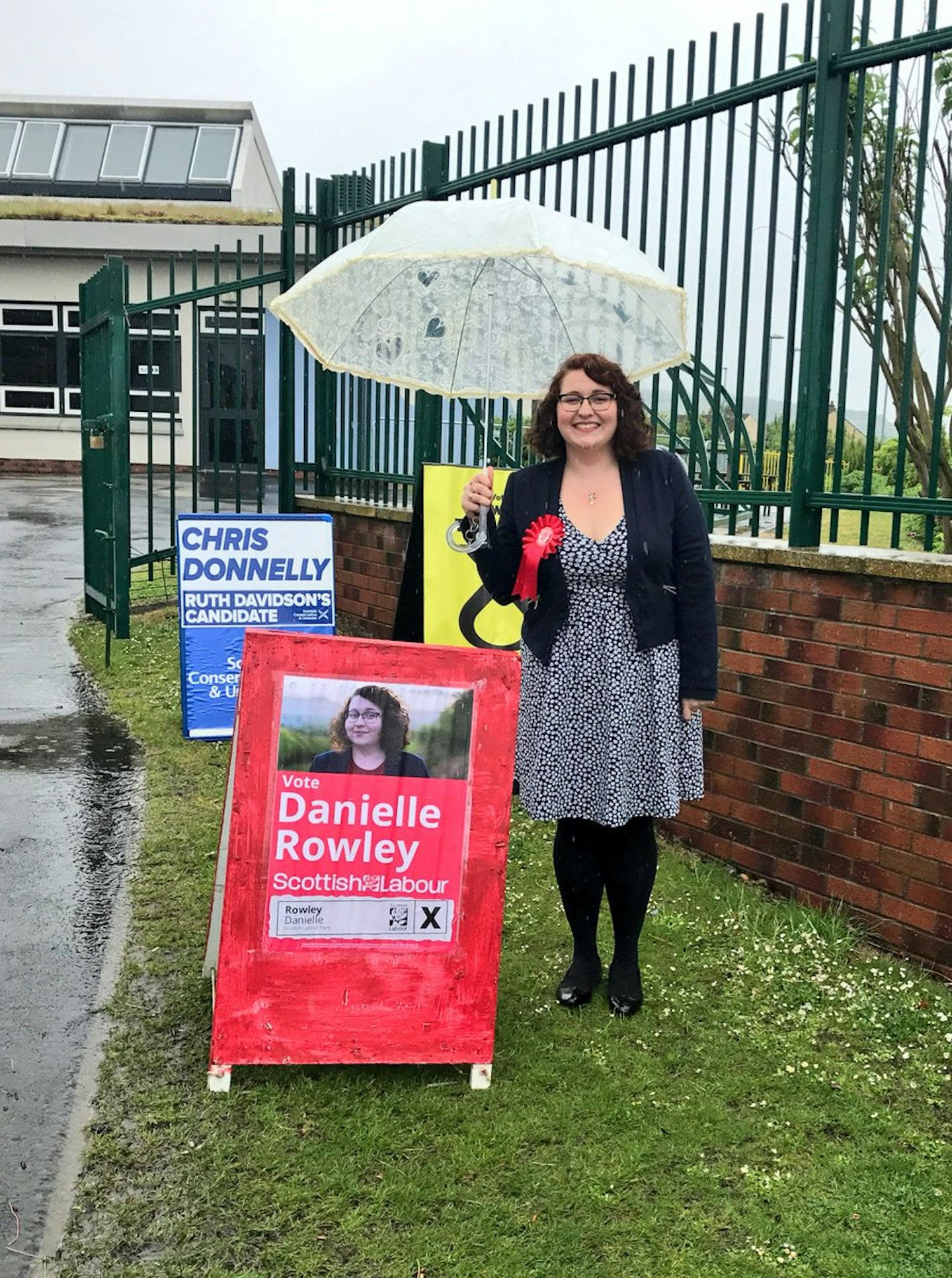 1 of 10
1 of 10Danielle Rowley, 28, Midlothian Scottish Labour MP
Speaking about her groundbreaking announcement, Danielle perfectly highlighted just how ridiculous it is that it's even a taboo to mention your period. She said on Twitter:'A lot of unexpected coverage of me talking about my period - which is great, but also highlights the need to talk about periods more openly.A woman mentioning her period shouldn't be such huge news - let's use this opportunity and work together to get to a place where it's not!'
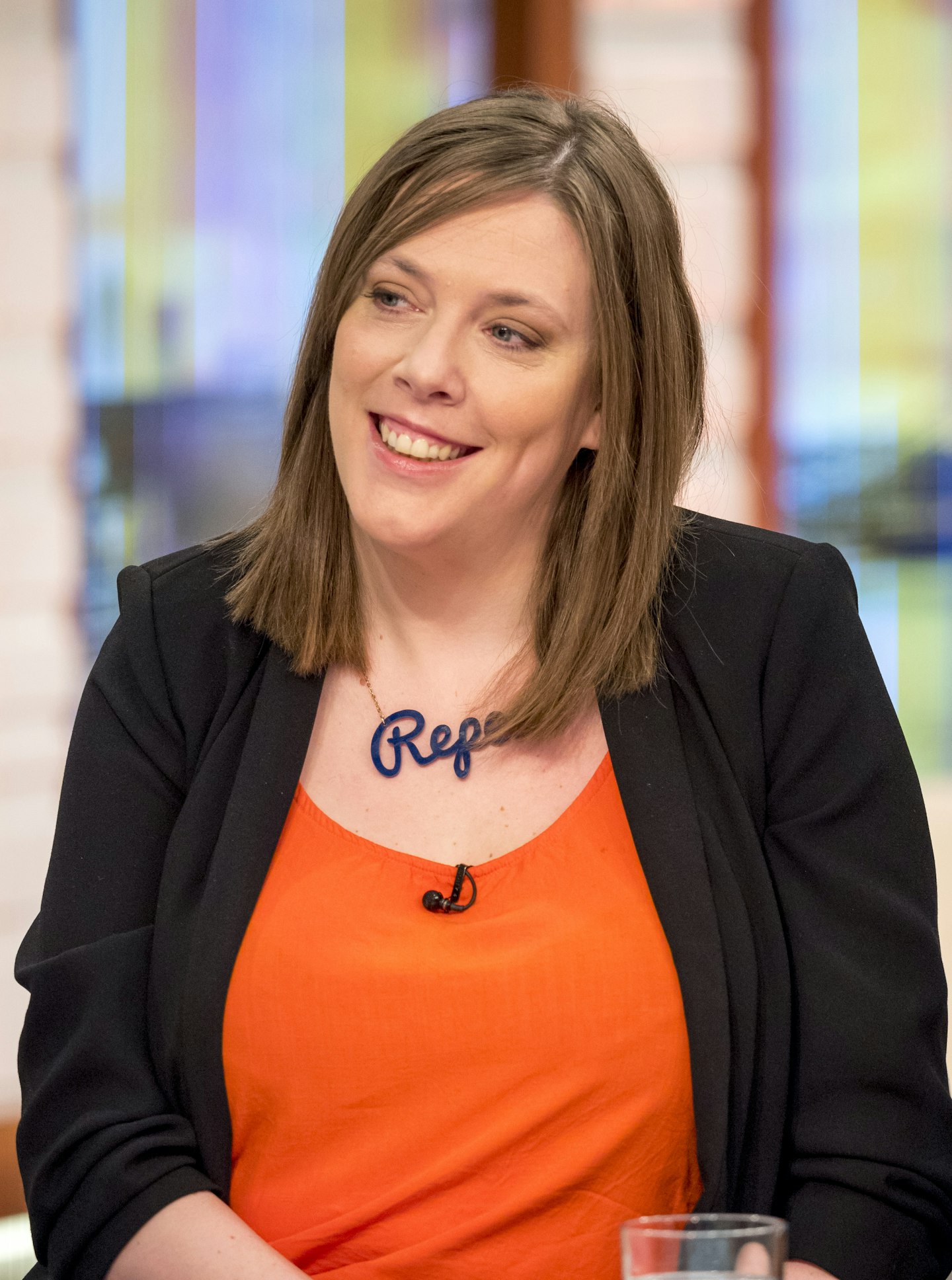 2 of 10
2 of 10Jess Phillips, 36, Birmingham Yardley Labour MP
Jess brought social media trolls to account when she called for those who post abusive messages online to lose their anonymity. The MP told parliament that she once received 600 rape threats in one night and is threatened with violence and aggression every single day online. The online community is so hostile towards women that Amnesty International have led a campaign calling for Twitter to take greater responsibility for preventing online abuse. Jess told the House of Commons that people should have to disclose their real identity to social media platforms, with hope that it would not only deter people from abusing women online but also enable us to hold them to account.
 3 of 10
3 of 10Heidi Allen, 43, South Cambridgeshire Conservative MP
Heidi, alongside Jess Phillips, shared an emotional account of her own abortion with parliament earlier this month. In an attempt to reform Northern Ireland's abortion laws, she told the Cambridge independent that she felt she needed to share her story:'I had intended to say it because I had a feeling nobody else would.'I thought it probably needed saying.'I suppose it is very easy to make issues like that just about procedure and legislation and words and policy but, actually, it is about people's lives.'Jess Phillips too opened up about her own abortion, also sharing harrowing stories from women in Northern Ireland who had terminated pregnancies.
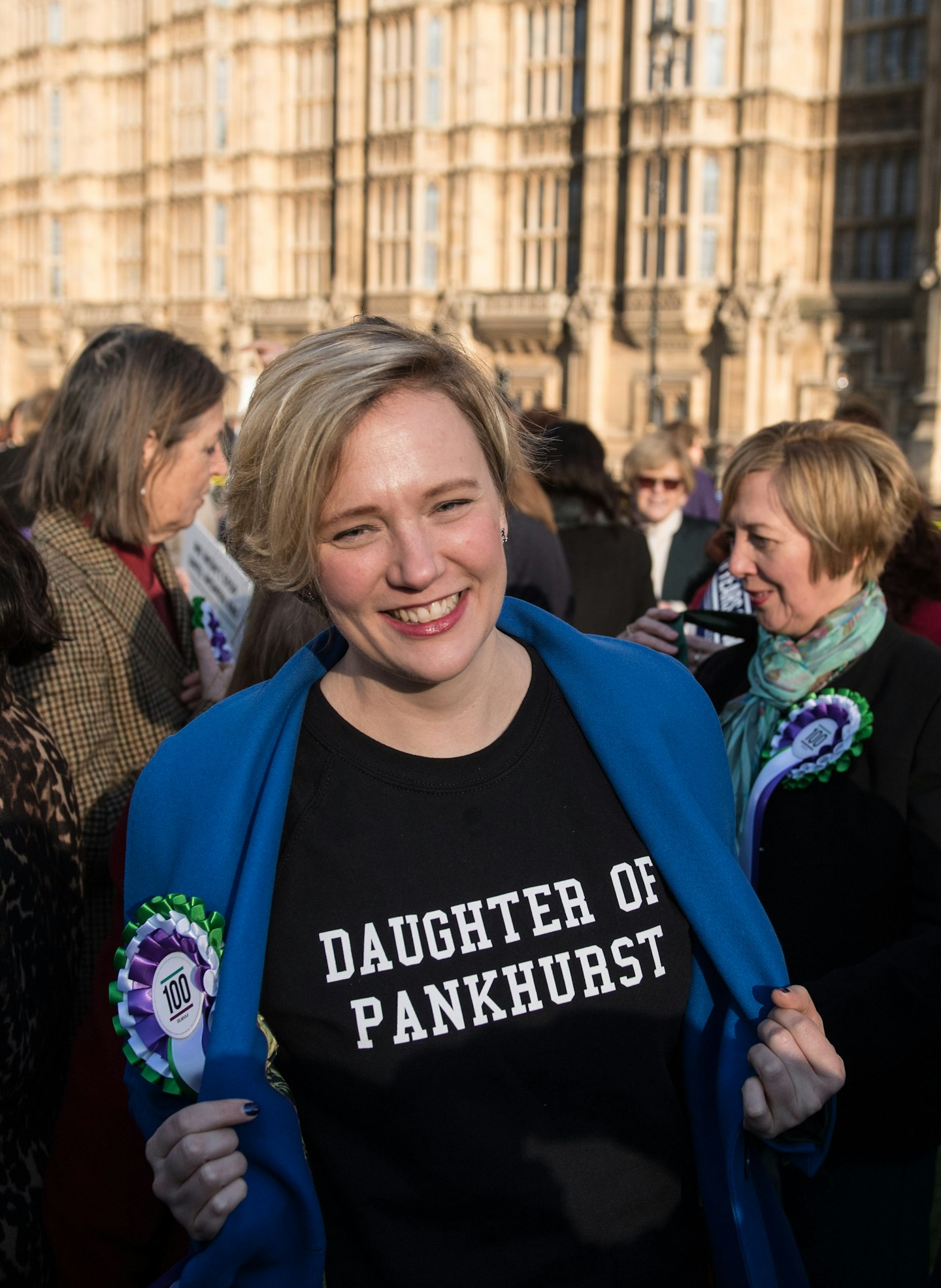 4 of 10
4 of 10Stella Creasy, 41, Walthamstow Labour MP
The original lead of cross-party calls for Northern Ireland's abortion laws to be brought in line with the rest of the UK's, Stella received tons of hate mail over her campaign to protect women's right to choose. It was in her call for debate over abortion that Heidi Allen and Jess Philips were able to talk about their own terminations.
 5 of 10
5 of 10Penny Mourdant, 45, Portsmouth North Conservative MP
The Minister for Women and Equalities, Penny Mourdant launched the National Action Plan on Women, Peace and Securitywhich calls for more women to be at the centre of the DFID's peace, security and humanitarian programmes. As secretary of state for international development, she has attempted to reform the aid sector by creating an independent safeguarding unit that prevents exploitation. This comes in the wake of a series of sex scandals against leading charities earlier this year.
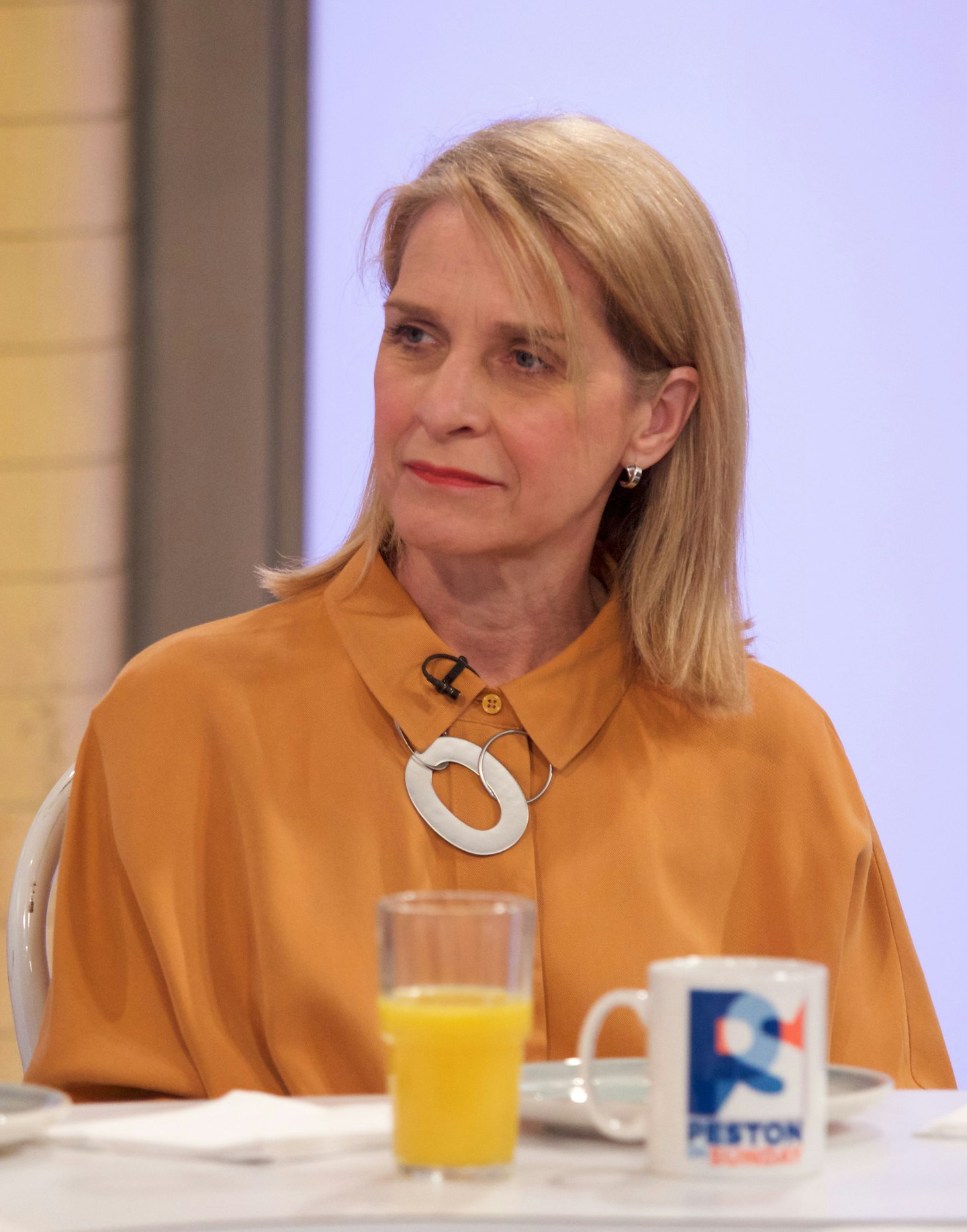 6 of 10
6 of 10Wera Hobhouse, 58, Bath Liberal Democrat MP
Wera Hobhouse brought Gina Martin's upskirting campaign to parliament as a private members bill set to outlaw the vile crime. While the bill was subsequently blocked by two male MPs, a third reading of the bill is set to continue on the 6th of July with Gina stating 'the Government Bill will become law as it'll get through the later stages more quickly and won't be objected to.'
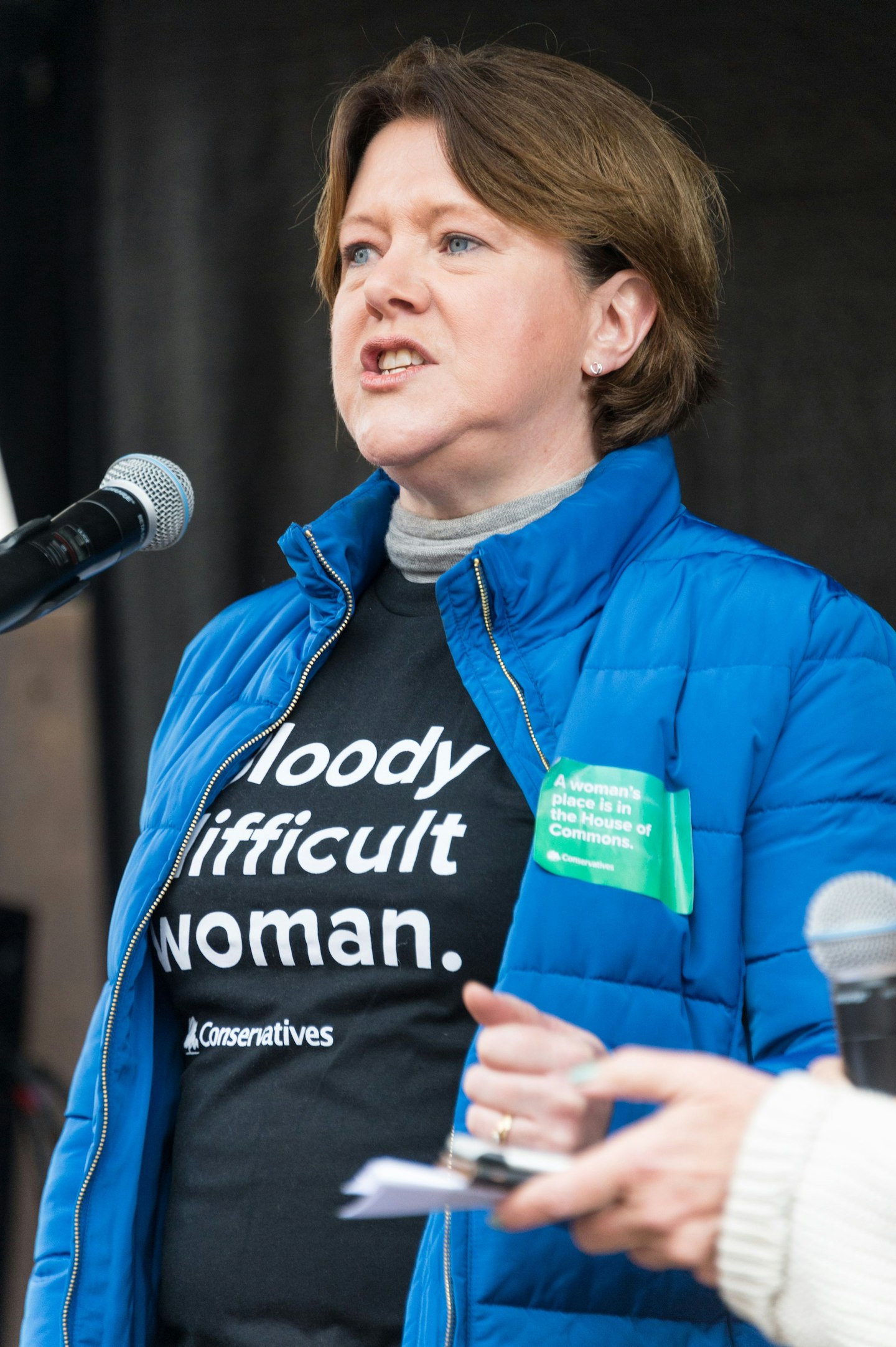 7 of 10
7 of 10Maria Miller, 54, Basingstoke Conservative MP
It was off the back of the upskirting bill that Maria Miller and Jess Phillips have met with Wera Hobhouse in an attempt to include a revenge porn amendment. It would ensure there was a blanket ban on voyeuristic images regardless of the intention in taking it, as the MPs feared people would attempt to bend the wording of the upskirting law to avoid conviction by arguing they took the image with no intention of causing distress. They also wanted to introduce an amendment that would ban false pornographic images, in which faces are photoshopped onto explicit images. However, they were told it was impossible to introduce further amendments. This comes after Love Island stars Zara McDermott and Laura Anderson became victims of revenge porn this week.
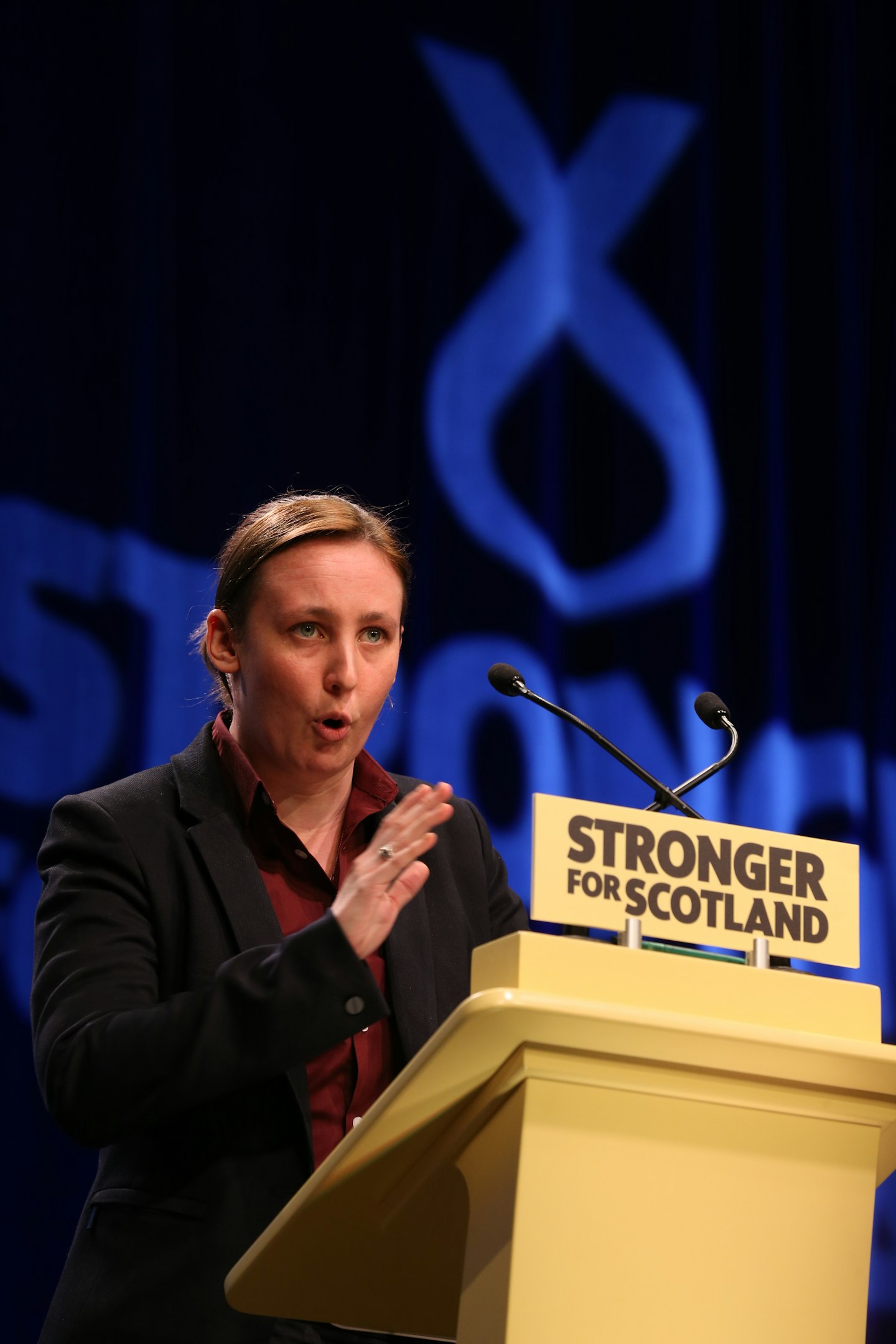 8 of 10
8 of 10Mhairi Black, Paisley and Renfrewshire South SNP MP
As part of the discussion about classing misogyny as a hate crime, Mhairi Black spoke out about the misogynistic and homophobic abuse she receives online every day. She also asked parliament to reflect on their own environment, stating, 'Only a few weeks ago I was physically pressed up against a Member (of Parliament) in the voting lobby who is accused of sexual misconduct because there's so little room.'Acknowledging she has the 'same right and influence as any other elected man', she spoke up for the female staff who aren't in her position.
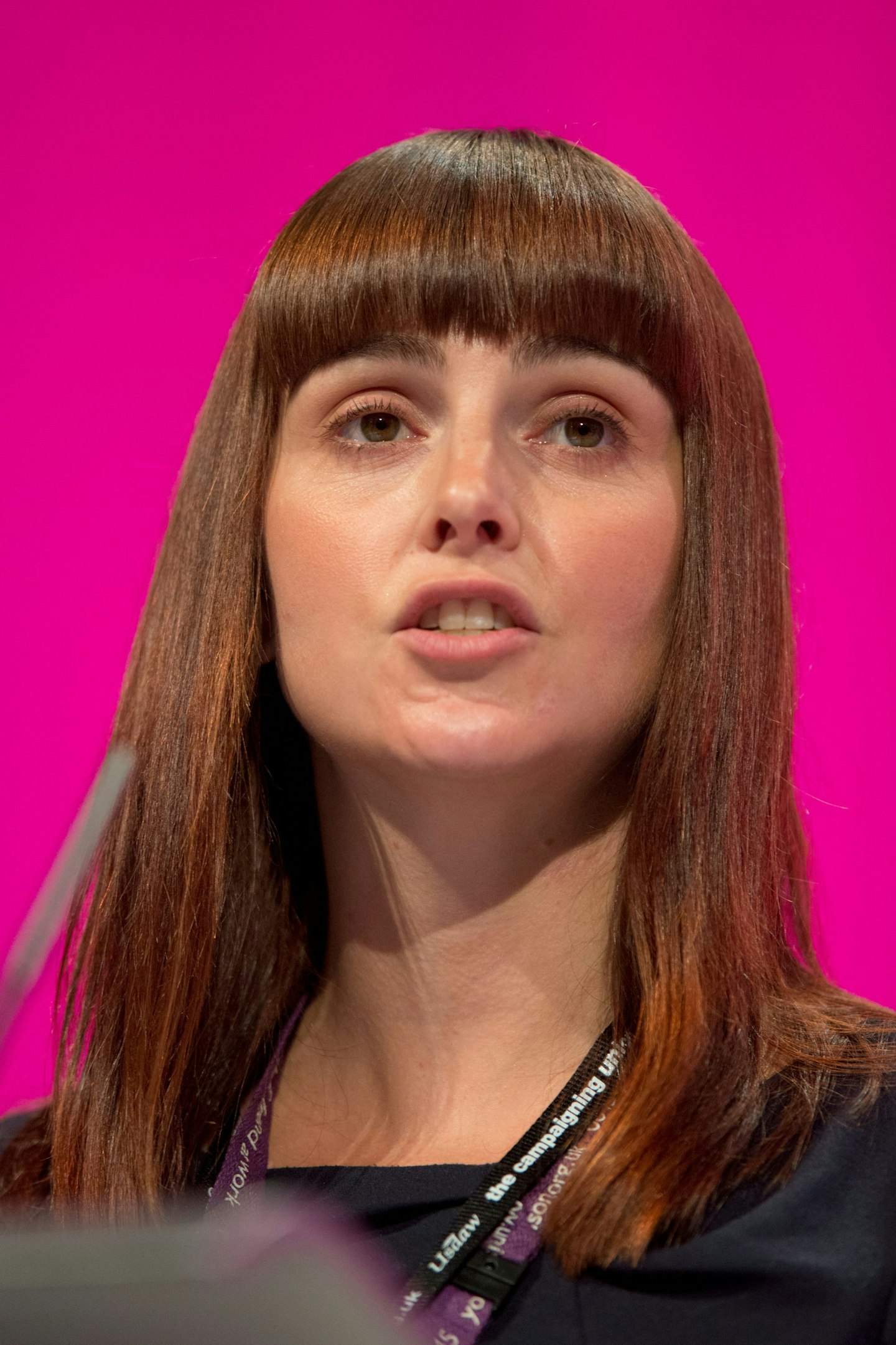 9 of 10
9 of 10Melanie Onn, 39, Great Grimsby Labour MP
Leading the charge to make misogyny a hate crime, Melanie highlighted the 'link between low-level harassment of women and more serious sexual assaults' that was found by Westminster's all-party group on domestic violence. In her constituency, the rate of domestic violence is particularly high. As a result, she has called for a law change to have misogynistic acts such as wolf-whistling, leering and sexual comments in public to be made a criminal offence.
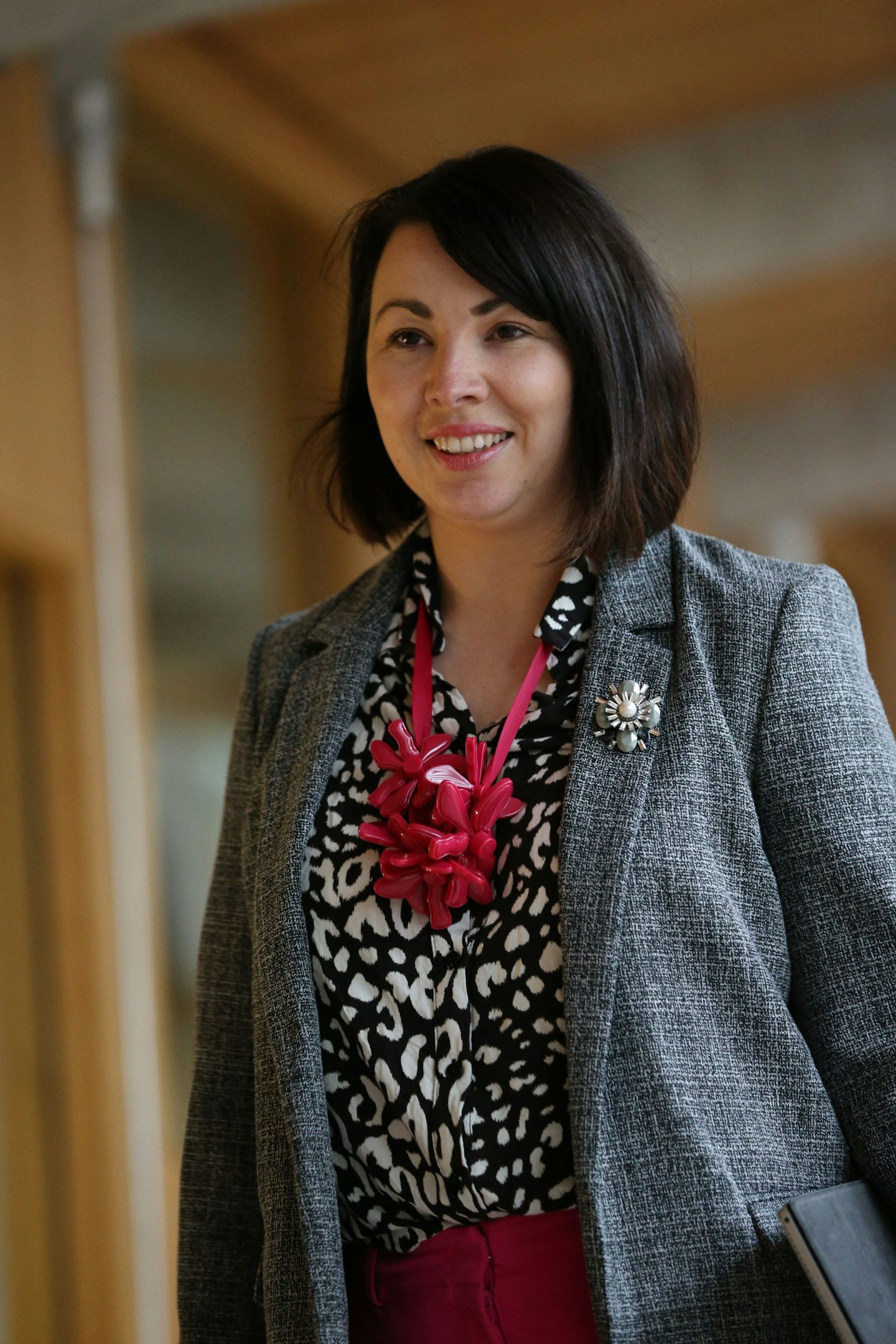 10 of 10
10 of 10Monica Lennon, 37, Central Scotland Scottish Labour MSP
Monica introduced a Member's Bill into Scottish parliament that would see the creation of free universal access to sanitary products. Proposing also that schools, colleges and universities provide free sanitary products in their toilets, she led the campaign that stands to end period poverty in Scotland.
